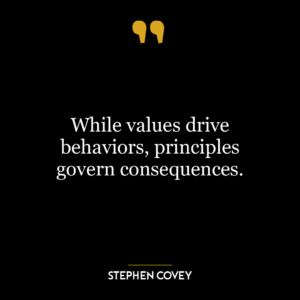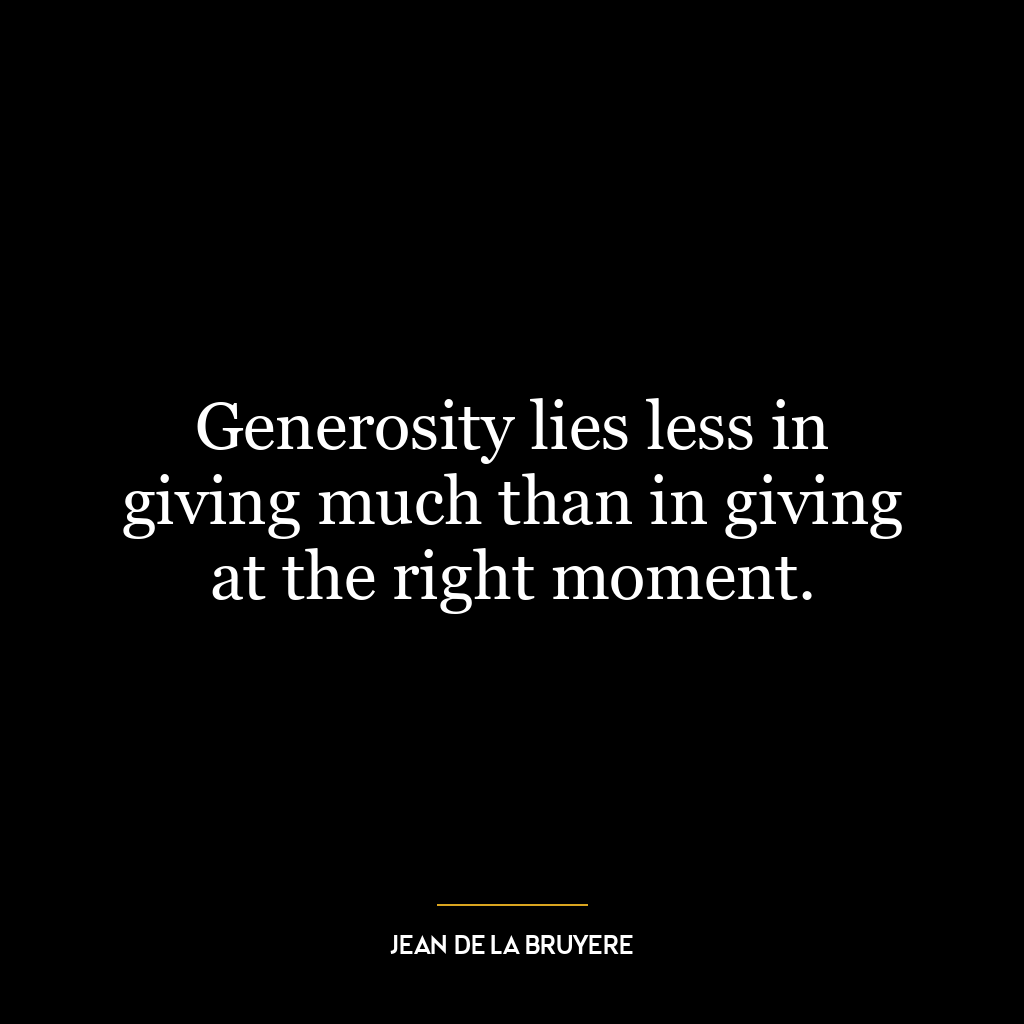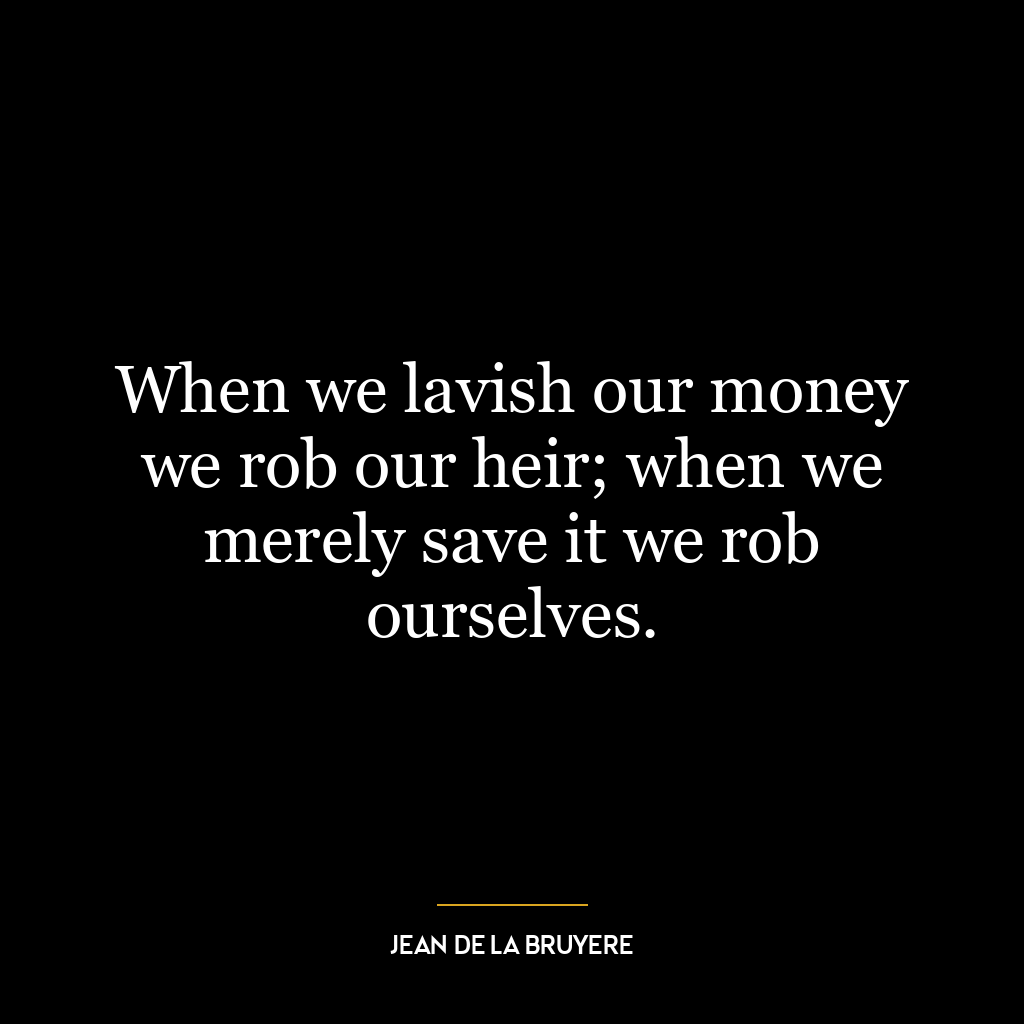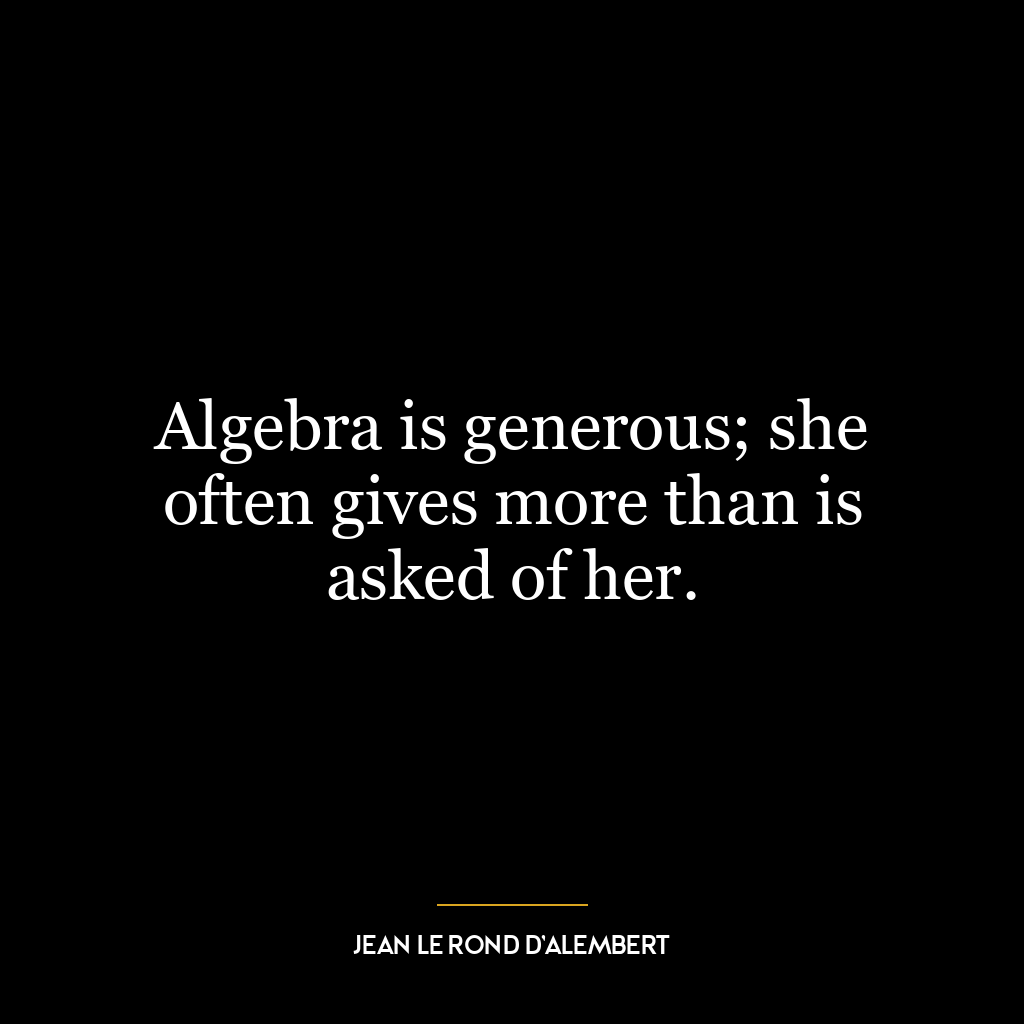The great apparent dichotomy is that the more we give, the more we get.
The great apparent dichotomy is that the more we give, the more we get" presents a paradoxical truth about human behavior and relationships. The word ‘dichotomy’ refers to a division or contrast between two things that are presented as opposites or entirely different. On the surface, giving and getting seem to be opposites. Conventional wisdom suggests that when we give, we lose something, and when we get, we gain. However, this quote challenges that notion and proposes that these two actions are not mutually exclusive but rather interconnected.
The quote suggests that the act of giving can lead to receiving. This does not necessarily mean that if we give material possessions, we will receive material possessions in return. The "getting" here can refer to a wide range of things – respect, love, gratitude, satisfaction, fulfillment, or even a sense of purpose. In giving, we enrich ourselves emotionally, psychologically, and sometimes, even materially. This is because giving fosters positive feelings and relationships, which in turn can lead to various forms of personal gain.
In today’s world, this idea can be applied in many ways. In the realm of personal development, it suggests that people who are generous with their time, resources, and skills tend to experience personal growth. They develop better relationships, improve their emotional wellbeing, and often find more opportunities coming their way. It’s a reminder that selflessness can lead to personal enrichment, and that our actions towards others can have a profound impact on our own lives.
In a broader societal context, this quote can be seen as a call for more altruism and compassion. If everyone understood that giving can lead to personal gain, we might see more acts of kindness, more charitable giving, and overall, a more empathetic society. This might lead to a world where wealth is not just about material possessions, but also about the richness of our relationships and emotional lives.









